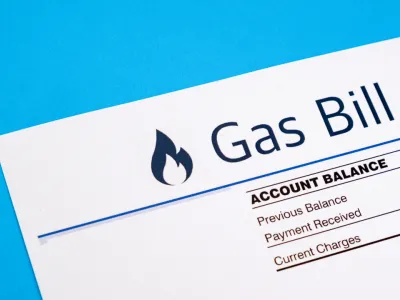Not just a Texas problem: Minnesotans will be paying for the recent natural gas spike, too

Published April 2, 2021
Two weeks ago, I wrote about proposed legislation to help consumers weather a dramatic spike in the price of natural gas that occurred in February. The issue is moving forward in both the legislative and regulatory arenas, so I am back with an update.
The severe cold weather that hit Texas and the Midwest caused gas prices to skyrocket nationally. Many Minnesota gas utilities reportedly paid, on average, an extra $200-$400 per household over a period of just 3 to 10 days. While customers of a handful of municipal utilities have already begun to see these charges on their bills, most utilities have not yet passed on the costs, and most will do so gradually over the course of a year or more.
At the Public Utilities Commission
Private, investor-owned utilities – including CenterPoint, Xcel, Minnesota Energy Resources, Greater Minnesota Gas, and Great Plains Natural Gas – must get approval from state regulators before assessing these new costs to customers. (Greater Minnesota Gas was reportedly not affected.) These utilities are required to file plans with the Public Utilities Commission (PUC), and the plans should discuss how they will minimize bill impacts by spreading the costs over time, considering special protections for low-income customers, and other options. More fundamentally, these utilities must also justify that their spending was prudent before they can recover costs from customers.
CenterPoint is the first utility to have filed a proposal (PUC docket number 21-138). It is asking to charge residential customers each $394 over the course of two years to cover a $500 million gas bill the company reportedly incurred between February 12 and February 22. Notably, CenterPoint also asks to charge customers interest, and it would charge each household the same amount regardless of the amount the household uses. CenterPoint’s proposal would provide a discount for certain low-income households, but they include very few of their 800,000 residential customers. CUB has concerns about these issues, and we filed comments today, together with the Energy CENTS Coalition, requesting detailed consideration of these and other issues raised by CenterPoint’s request before any costs are permitted to be passed to customers.
In addition, the PUC is conducting a general investigation of the gas utilities’ actions related to this price spike (docket number 21-135). The investigation will look at utilities’ actions before and during the price spike, including their use of gas available in storage and voluntary programs to reduce customer demand, as well as their practices related to gas contracts and spot market purchases more broadly.
CUB is engaged in both proceedings on behalf of Minnesota consumers, and we will watch carefully as additional PUC dockets are opened with cost recovery proposals from the state’s other gas utilities.
At the legislature
Meanwhile, bills are moving forward at the state legislature. The House and Senate energy committees both advanced bills (HF 2216/SF 2132) that would (1) provide funding to reduce the cost of the price spike for low-income households and (2) provide five-year, zero-interest loans to municipal utilities, to help those utilities spread out customers’ costs and reduce rate shock, because it can be more difficult for city governments to borrow money than for privately owned utilities.
The Senate later separated the municipal loan component into a separate bill, which it passed off the floor on March 25. The two elements continue to move forward as a single bill in the House, and a solution remains to be negotiated between the two bodies.
What you can do
If you see a large gas supply charge on your bill, call your utility. Minnesotans whose gas bill comes from their city may see these charges as early as March or April, though some cities may apply them later and/or more gradually. Any customer can request a payment plan to allow you to pay off a large balance gradually over time without penalty. If you run into any trouble, contact the Consumer Affairs Office at the Public Utilities Commission: 651-296-0406, 800-657-3782, or consumer.puc@state.mn.us.
If you’d like the legislature to provide assistance with these bills, let your state Representative and Senator know that you support HF 2216 and SF 2132. You can find out who represents you and get their contact information here.
Finally, individuals or households that meet income guidelines can receive Energy Assistance, whether you’ll be affected by the gas price spike not. The state is receiving extra Energy Assistance this year, so there are a lot of funds available. Eligibility is based on household income; view eligibility guidelines here. A family of three who earned $11,415 or less in the last three months qualifies. Eligibility changes are possible as the state receives additional funding, too, so keep an eye on this blog. To apply for assistance, contact the local provider in your area.